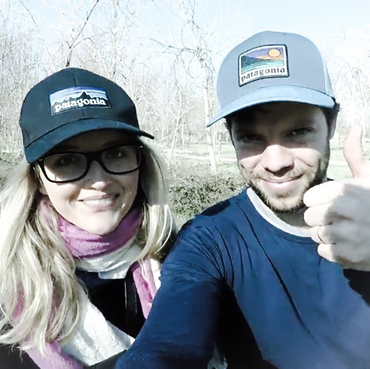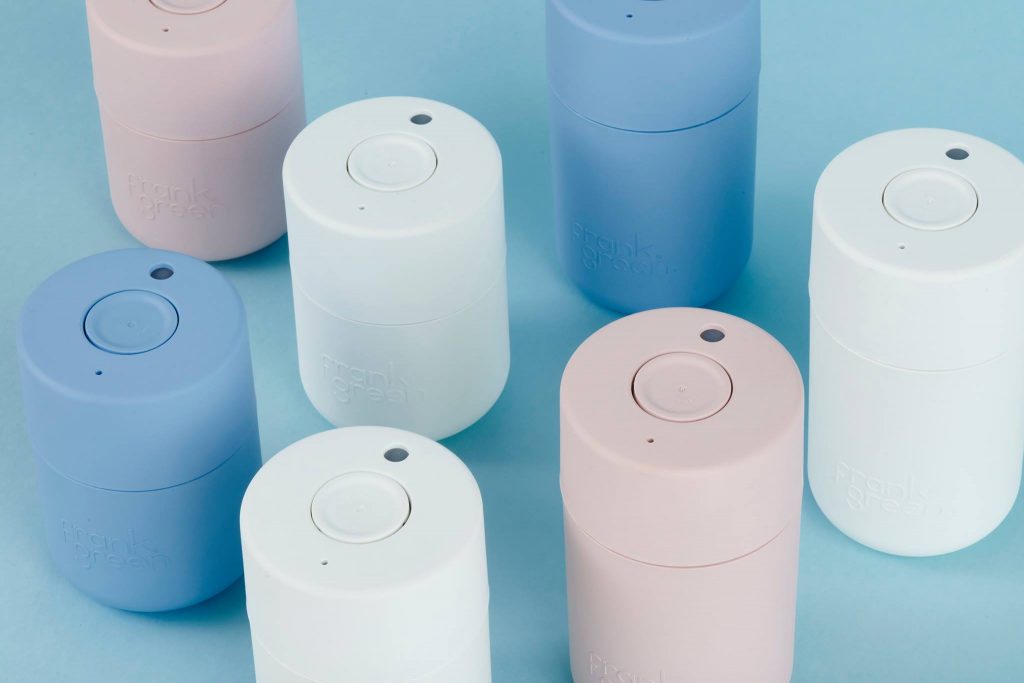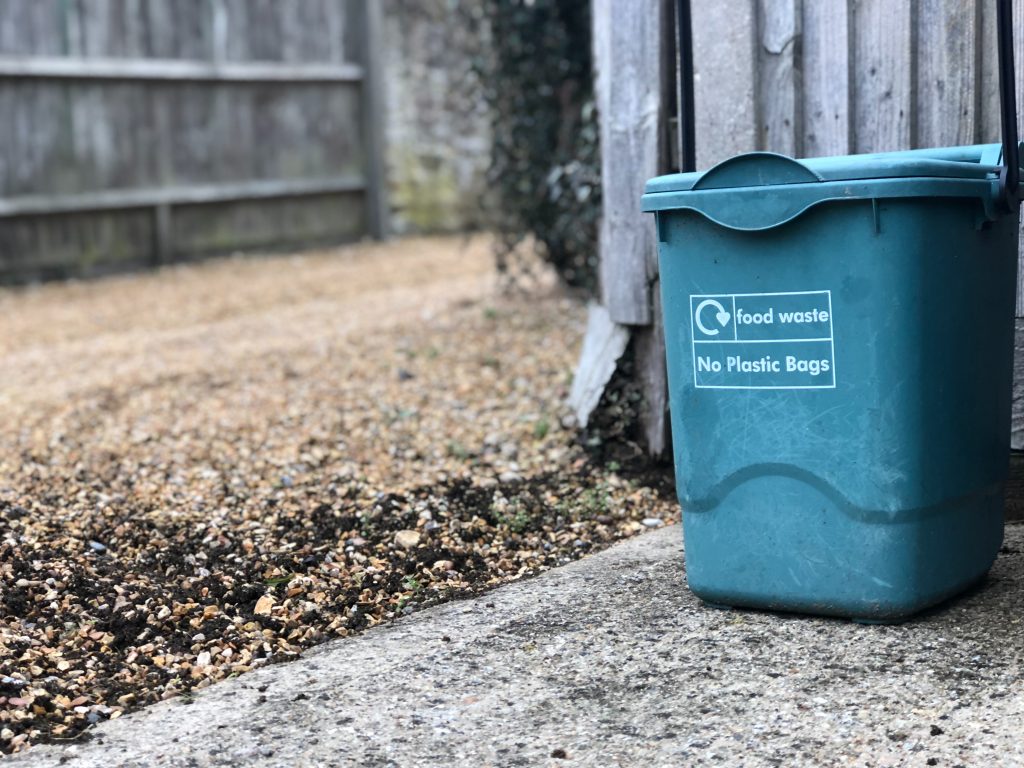Joy and Lyall run Sustainable Jungle and they’ve been sharing ways in which you can kick start zero waste living with their top 5 tips and tricks.

For the last two and a half years we’ve tried (and still try) to live a more sustainable life. Fine tuning the ways in which we do things, from buying groceries and clothes to throwing trash away and composting.
All in an effort to minimise our footprint and leave the world a better place.
Of course, the lifestyle we have now is very different to the one we started out with. We’ve made small (and big) tweaks along the way. Some have been easier than others and we took our time to make adjustments in almost every aspect of our lives.
It’s been a purposeful journey and we like to think that we’re a little more conscious of our place in the world and the impact (positive or negative) that we’re capable of having.
This life of less waste or minimalism comes in a bunch of forms but for us it’s probably best expressed as zero waste living. It’s really an ideal, no one can ever truly be zero waste. But that’s missing the point.
To quote the old adage, it’s the journey not the destination.
What is zero waste?
Zero waste is trending. Even if you haven’t got your pulse on the topic of sustainable living, it’s likely you’ve heard this phrase (somewhere) before.
In a nutshell, the concept of zero waste is to send nothing to landfill. It’s a strategy or goal (however you like to put it) to eliminate waste. The “Circular Economy” or “Cradle to Cradle” is often used to describe this model as opposed to the mainstream approach of “Cradle to the Grave”. Single use plastics is probably the best example of the latter.
Without getting too technical, the aim of zero waste is to address the source of the problem. Be it a behavioural one that is habit driven or the way in which products are designed so as to be reused again and again. The result is that no waste is ever created. Much like the way mother nature operates.
Currently, our means of dealing with the linear approach is to recycle. This, in contrast, focuses on the final result. The end of an item’s short or single-use life when it becomes trash.
Unfortunately, recycling is not the answer. There are serious flaws with this “solution” and most of the world’s populous are completely unaware of this.
Recycling is not zero waste
You may have been diligently recycling for years but in reality only about 12% of plastics are recycled. 40% goes into landfills and 32% makes its way into rivers, streams, waterways and eventually the ocean.
We know. It’s hard to look past these disheartening figures and see a silver lining. We have certainly felt that way before and often there are times when we still do.
But there is a way around this. It’s about focusing your attention in the right direction. It’s about what you can do, not on what the world isn’t.
As we said, some call it zero waste, some call it sustainable living or just living a less wasteful life. However you like to frame it, it’s the response, on an individual level, to change the status quo. That is to change your habits, your way of life into a more sustainable one.
Zero Waste Tips and Tricks
1. Reusable cups and flasks
It’s ditching the disposable coffee cups and handy bottles of water for a stainless steel one that will last forever. Store it in your bag on your way to work, or in the bottom of your pram so you don’t forget it. Remember, you can always refill your water flask using your nearest refill water station, rather than buying another bottle.

2. Remember your bag for life
It’s a tricky habit to get into but store it in the bottom of the pram, or pop a small bag at the bottom of your work bag, so you always have one to hand. Once you get into this habit, it’ll always be there when you need it.
3. Composting food waste
It’s not a widely known fact but food dumped in landfill mixes with non-organic material and produces methane. Correctly disposing of your food waste to reduce not only the trash going to landfill but also carbon emissions is a very environmentally effective and cost effective alternative. Many councils now offer a food waste disposal service or get yourself a composting bin in the garden.

4. Reusable cloths
Stop, stop, stop using wet wipes, facial cleansing wipes, cotton wool, paper towels, disposable dish cloths, disposable household cleaning wipes. They either contain plastic or are wrapped in plastic and are terrible for the environment and our sewers. Instead buy a set of washable cloths that can be reused again and again. Top tip: buy them in different colours, sizes or textures so you know which ones should be used where. For example, pink cloths are for the face and hands, orange ones are for babies bottoms and green ones are for washing the dishes!
5. Don’t buy brand new
Think about what you need to own and what you can borrow. Do we need to own everything that we own? There are many companies out there giving consumers the option to rent items rather than own them. Great examples are to rent clothing, furniture, tools, baby clothes and of course toys!
Start slowly but start now
There are so many small (and big) changes that each of us can make that will overtime have a huge impact. The hardest part of this journey is the start. It can seem overwhelming and many think that it takes a lot of work to be “zero waste” or to live a sustainable life. But nobody is truly “zero waste” or living a perfectly sustainable life. We’re all somewhere on the spectrum.
The point is to just get going and move in the right direction. However small and however slowly. Our suggestion: start small and with one habit. Once you’ve built that into your daily routine, then add another and then another and before you know it, you’ll be looking back over the last while and realise how different your lifestyle has become. And just adding up all the positive changes you’ve made, you’ll see how big of an impact even just one person can have in the world.
We’ve found this journey to be fulfilling and purposeful, so much so that we even created our own blog about it.
Just remember, every choice you make, from the products you buy to the brands you choose to support is casting a vote for the type of world you want to live in.
Joy & Lyall